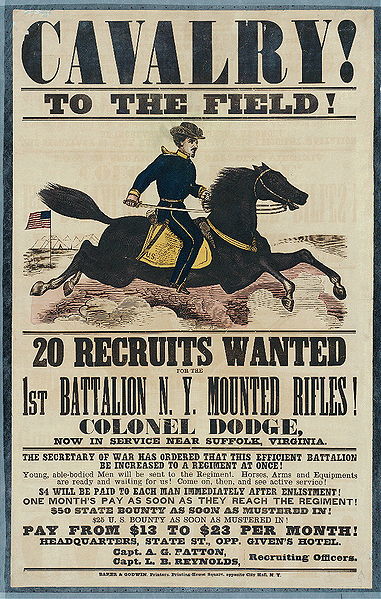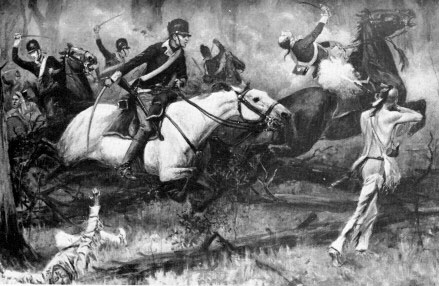The Constitution very clearly notes that any powers not granted to the federal government belong to the states. Even so, the federal government maintains a degree of control in the form of federal oversight, as well as the collection of taxes. For instance, while the states are authorized to decide a minimum age for purchasing tobacco and can impose a high tax on the sale of cigarettes to try to reduce the number of smokers, the federal government is responsible for regulating interstate sales.
The interaction between the states and the federal government has always been a primary source of tension regarding how the Constitution should be interpreted. The following historical events illustrate this tension and some of the conflicts it has caused between local and federal authorities.
Civil War
Prohibition
State Militias
Gun Control

The idea that states’ rights might be unrestricted by the Constitution was put to rest by the outcome of the Civil War. At that point, it became clear that the federal government could "oblige," or require, consent from the states on matters of national concern. The Confederacy was formed, after all, because a block of states with similar concerns decided that the federal government intended to impose its will (the abolition of slavery) in ways that Southern states considered unconstitutional.
Once the Confederate states had left the Union, of course, it was fairly easy to achieve the necessary two-thirds state assembly support for an amendment that banned slavery. After the war was won by the Union army, Southern states were required to ratify the Thirteenth Amendment to return to the Union and have their rights restored.
The federal government then enacted a plan to maintain compliance in the South with federal laws regarding slavery. First, it gave each state in the Union large land grants to build state universities. Male students were allowed to study for free, but they also had to serve as officers in the Union army. These officers were sent to Southern states after the war to prevent the Confederate army from reforming. In this example, the federal government worked through state governments to achieve the results that seemed necessary for protecting a federal system.
![Sheriff dumps bootleg booze By Unknown photographer, Orange County Archives (Sheriff dumps bootleg booze) [CC BY 2.0 (http://creativecommons.org/licenses/by/2.0)], via Wikimedia Commons](https://s3.amazonaws.com/cms.accelerate-ed.com/image/7633ece6-493b-4809-bbc6-d46a231574b5.jpg)
While most legislators agree that the process for ratifying amendments is very difficult in modern times, there was at least one time when it may have proved too easy! In 1919, the Eighteenth Amendment prohibiting the sale of alcohol was ratified by a slim majority of states. By 1933, it became the only amendment to be canceled by another amendment, the Twenty-First Amendment, which repealed Prohibition.
The Eighteenth Amendment was passed, essentially, because of political pressure from very vocal religious groups. By linking alcohol consumption to a number of societal ills, including domestic abuse, violent crime, and the neglect of children, these groups shamed federal politicians into supporting the ban. However, a large majority of American citizens disapproved of Prohibition. In fact, most people largely ignored the law or found ways to get around it. Eventually, Prohibition led to the rise of organized criminals and gangs who made the nation's cities their battlegrounds. President Franklin Roosevelt led the push to repeal Prohibition, responding to public outcry that a law intended to make Americans safer had actually created more violent criminals.

One purpose of the amendments included in the Bill of Rights was to offer a compromise to smaller states that had threatened to reject the Constitution. Each of these states had a well-developed military organization, or militia. And since the Constitution called for a unified federal army, some states worried that their independent militias were in danger of being disbanded. The Constitution's guarantee that state militias could remain intact and that the soldiers could remain armed was a necessary concession for ratification. Delaware and Rhode Island had made it clear that they wouldn’t even attend the Constitutional Convention without this reassurance. One argument they made was that the Southern states had received a guarantee that slavery would not be banned by the federal government; other states, therefore, deserved similar assurances in response to their own concerns.
![March on Washington for Gun Control By Slowking4 (Own work) [CC BY-SA 3.0 (https://creativecommons.org/licenses/by-sa/3.0)], via Wikimedia Commons](https://s3.amazonaws.com/cms.accelerate-ed.com/image/d7044f4d-dc54-4f9a-bbcb-c1401d203881.jpg)
Today, the issue of gun ownership remains a major cause of political and social tension in the United States. It is also one of the most contentious examples of disagreements about what the Constitution's framers intended. The fact that language related to citizens' right to "bear arms" is so vague makes the issue particularly ripe for arguments pitting literal interpretations of the Constitution against attempts to analyze the spirit of the document.
Despite the existence of an amendment that seems to say citizens have a right to own guns, individual states have been allowed to decide whether this "right" should be limited in any way. As a result, gun laws vary widely across the country. While some states allow citizens to carry weapons openly in public spaces, other states permit only authorized or "licensed" individuals to carry guns at all. The issue of gun ownership demonstrates the complexity of state and federal laws and the degree to which they often overlap. For instance, the federal government assists states with background checks and attempts to prevent transfer of weapons across state lines. This approach is not always very effective, however, since many open-carry states share borders with states where gun ownership is restricted.
As these events demonstrate, the inability of the federal government to interfere with state policies and the difficulties that states experience enacting federal mandates have often led to disagreements about how the Constitution should be interpreted.
Question
What essential questions about the nature of the Constitution lie at the heart of disputes like the ones described on this page?
What is more important in interpretations of the Constitution for the purpose of governance--the literal text of the document or the "spirit" it was meant to convey?
